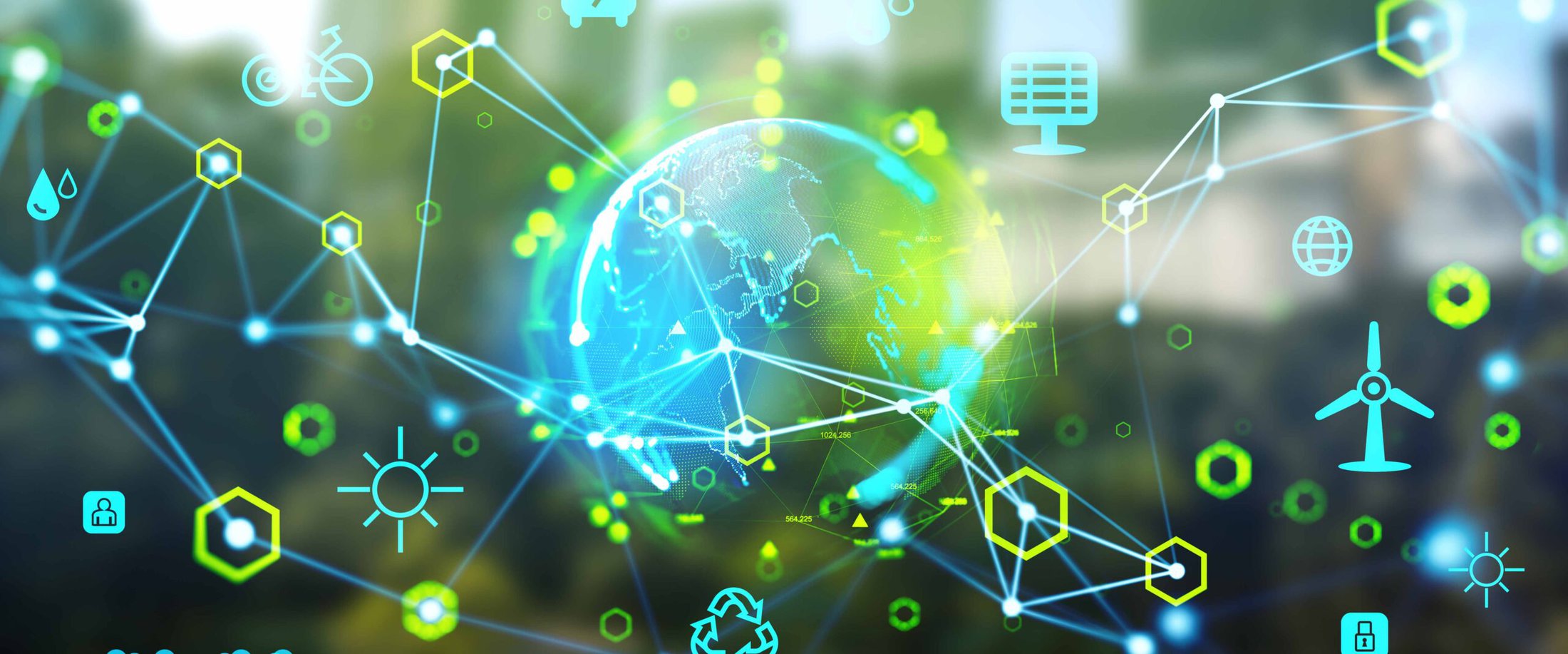
Wireless and battery-free sensors for sustainable smart cities
The sensors will provide real-time data for smart decision-making by allowing the natural environment and the built environment to communicate seamlessly.

The sensors will provide real-time data for smart decision-making by allowing the natural environment and the built environment to communicate seamlessly.
EXPERTS:
Written by Hayley Hanway and originally published by Michigan Electrical & Computer Engineering.
A new multidisciplinary project aims to develop sustainable sensing and communication strategies to bridge the gap between civil and living infrastructures. This research could further be applied to agriculture, urban planning, and environmental conservation.
“We’re on the path to make our cities smarter, more efficient, and ultimately, more livable,” said Albert Liu, Assistant Professor of Chemical Engineering, who serves as the Principal Investigator.
“We’re on the path to make our cities smarter, more efficient, and ultimately, more livable.”
Albert Liu
Assistant Professor of Chemical Engineering
The project, “Advancing Battery-less Sensing for Sustainable Living and Civil Infrastructures,” seeks to create wireless, battery-free sensors that can communicate seamlessly between human-made structures and the natural environment.
“Imagine electronic tattoos that can be grafted onto the surfaces of both living and artificial matter, harvesting energy from water and sunlight, sensing changes in their surroundings, and communicating vital information without ever needing a battery,” Liu said. “These sensors will play a crucial role in making our cities more sustainable and livable by providing real-time data for smart decision-making.”
It’s estimated that over 50 billion Internet of Things (IoT) devices will be deployed by 2023, requiring the use of billions of batteries that could significantly impact the environment.
“Currently, it is very challenging to deploy sensors and truly forget about them, because their batteries need to be continuously replaced or recharged,” said Aline Eid, Assistant Professor of Electrical and Computer Engineering, who is developing the wireless communication system for the project. “I want to enable the deployment of sensors in locations that are considered challenging or difficult to reach and allow them to communicate critical information over long distances.”
In addition, the team is working to develop explainable AI algorithms that will decipher the data collected by these sensors, which could help identify new patterns and relationships within and between infrastructure components. This plays a critical role in creating smart ecosystems that provide real-time data for informed decision-making policies, improving efficiency, sustainability, resiliency, and livability of infrastructure.
“Deploying smart responsive surfaces, also known as ‘smart skins,’ in both the living and civil infrastructures allows them to share sensing information that would be converted into digital twins used for modeling and predicting,” Eid said. “Examples of these digital twins include smart traffic and waste management systems, as well as urban agricultural programs.”
These sensors could also monitor the effects of pollution and climate change, which disproportionately impact communities of color and low-income communities. The resulting data would be useful in creating better interventions for addressing these impacts, thereby aiding environmental justice and reducing health disparities.
In addition to Liu and Eid, the team includes Abdallah Chehade, an Assistant Professor of Industrial and Manufacturing Systems Engineering at U-M-Dearborn, and Brendan O’Neill, an Assistant Research Scientist in the School for Environment and Sustainability.
Each faculty member is bringing unique skills to the project:
Abdallah Chehade
Chehade’s expertise in optimization, reliability, prognostics, AI, and statistical data analysis is crucial for condition-based maintenance, optimal action policies, and uncovering complex spatio-temporal patterns.
Aline Eid
Eid specializes in long-range mm-wave backscatter communications, developing wireless stickers with exceptional energy frugality for sensor communication over hundreds of meters.
Albert Liu
Liu is a pioneer in hydrovoltaics, a renewable energy harvesting technology that harnesses the interaction of liquid and vaporized water for power generation. His expertise in scalable hydrovoltaic generator preparation and fabrication of colloidal electronic sensors contributes to remote power supply for sensor networks and chemical sensing in soil and groundwater.
Brendan O’Neill
O’Neill’s expertise lies in soil research, which is vital for understanding ecosystem processes. Real-time, fine-scale sensing of moisture and heat in soil provides an opportunity to advance environmental modeling and optimize energy and crop production.
The project is funded by the Boost program run by the Bold Challenges Initiative at the University of Michigan.